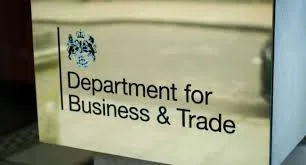
CBN Governor Olayemi Cardoso addresses the severe economic impact of Nigeria's N27 trillion ways and means loan. Highlighting inflation and foreign exchange issues, Cardoso explains the necessity of recent interest rate hikes and stresses the importance of market transparency and stability measures.
In a critical address at the BusinessDay CEO Forum, Olayemi Cardoso, the Governor of the Central Bank of Nigeria (CBN), underscored the severe economic repercussions of the N27 trillion Ways and Means loan. Cardoso highlighted how the approval and subsequent securitization of this debt, initially requested by former President Muhammadu Buhari and approved by the Senate on May 23, 2023, have significantly strained the nation's economy.
Cardoso pointed out that the substantial increase in money supply due to the ways and means of loans has led to inflationary pressures. "We all saw ways and means soar to N27 trillion and interventions went to N10.5 trillion. It has its consequences. In a large respect, that’s what we’re paying for now," he remarked.
To combat these inflationary pressures, the Monetary Policy Committee (MPC) of the CBN raised interest rates from 24.75 percent to 26.25 percent in May. Cardoso defended these hikes, noting their role in stabilizing the naira. "If these hikes were not done when they were done, if you recall, naira to the dollar was almost tipping over. This helped to stabilize things. It’s a timing issue," he explained.
Cardoso emphasized that these measures are temporary and necessary to balance excess liquidity in the system. The MPC, composed of data-driven individuals rather than emotional decision-makers, is focused on taming inflation and stabilizing the naira. Currently, Nigeria's inflation rate stands at a daunting 33.95 percent, driven by surging food prices and high energy costs.
Addressing foreign exchange volatility, Cardoso noted that the CBN has been working to correct dysfunctions in the financial system, including illicit flows. He stressed the importance of timely communication and market transparency in restoring stakeholders' confidence. "A lot of the wide swings witnessed in the foreign exchange market are gradually beginning to smooth out as a result of a better understanding of the market, better transparency, and the comfort that those who are using the market see in it," Cardoso stated.




